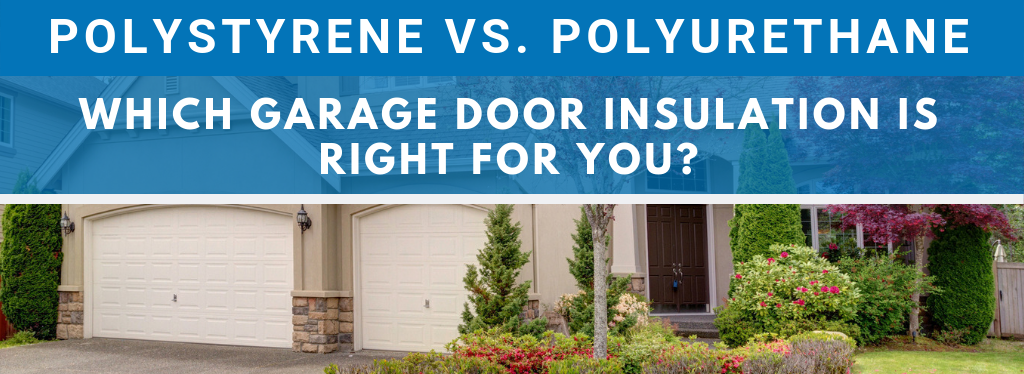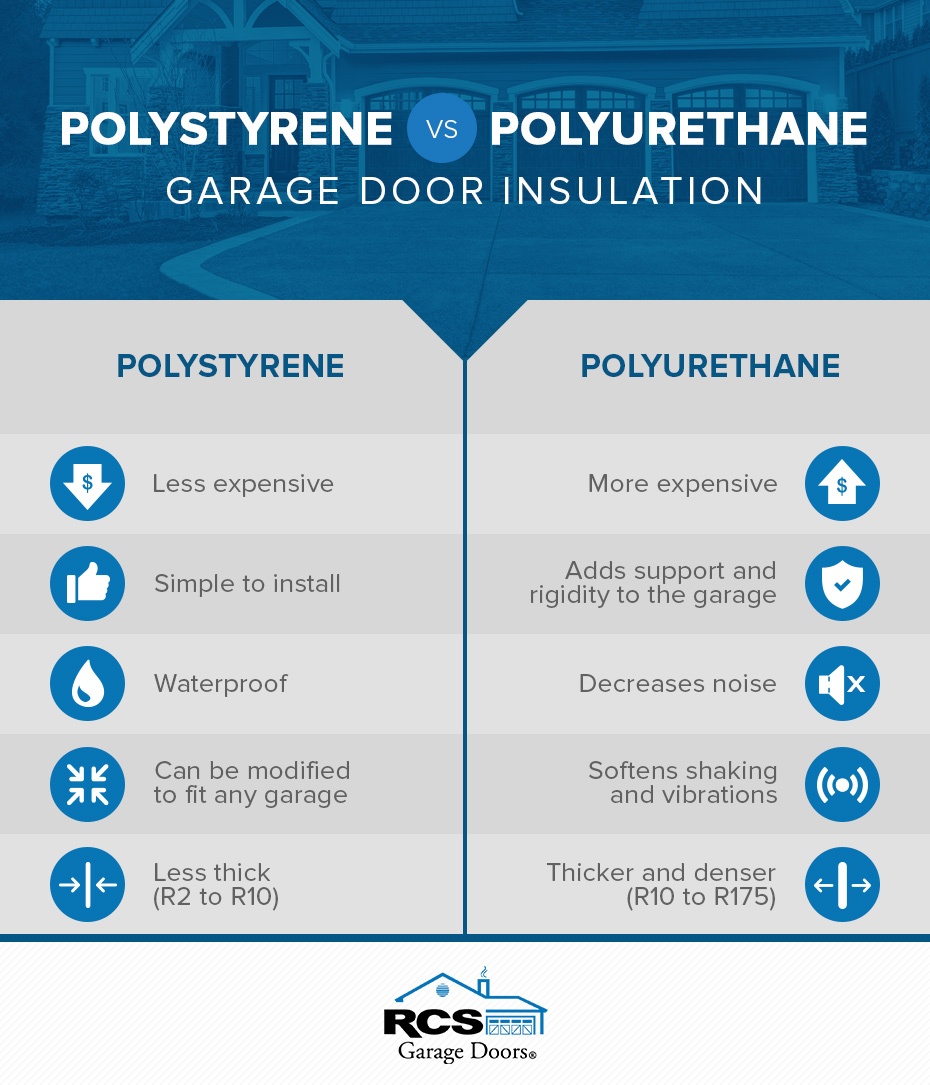Polystyrene vs. Polyurethane Garage Door Insulation
So, you’re thinking about insulating your garage door. This is a relatively simple project that can reap great benefits, but with the wide variety of approaches you can take to insulate your garage, how do you choose the one that is right for you?
Request a Quote for an Insulated Garage Door
Do I Need an Insulated Garage Door?
A lack of insulation in your garage can lead to a number of issues, including animal infestation, moisture damage, and higher energy bills. But, by adding insulation to your garage, or by replacing your garage door with an insulated one, you can greatly reduce or eliminate these issues while also creating a potential extra living space for you and your family. First, based on the type of garage that you have, decide if you need insulation.
Attached Garages
Insulating attached garages can have a great influence on your home’s overall insulation. With the garage and your home sharing a wall, or in some cases multiple walls, the garage pulls more heat from your home than you may think. Although you may not be able to feel the difference, garages can pull a significant amount of heat from the home due to their size, putting strain on central heating and air systems. This holds true even more so for garages with uninsulated metal doors. Because of this, attached garages are typically closer in temperature to the interior of the house than the exterior temperature, possibly leading to the development of condensation inside the garage, which, if isn’t properly dealt with, can lead to water damage over time.
You can make a big difference by simply adding or replacing the weatherstripping on the bottom of the garage door. This will help prevent some heat loss, as well as hinder some moisture from entering the area. Adding insulation to the door itself will provide you with the greatest results. Injected foam insulation is a popular and effective method of insulating garage doors. It is cut into panels for simple application. This combined with the relatively small space of a garage makes this one of the simplest and cheapest insulation projects you can do to improve your home.
Detached Garages
If you have a detached garage, you may have to take a different approach to insulating. It’s clear by not sharing any walls with your home that a detached garage has no effect on your home’s heating and cooling efficiency. However, if you spend a considerable amount of time in your detached garage, you may want some of the perks that come with central heating and air. Many people choose to use their detached garages as a separate living space, with some choosing to use it as a rec room by adding a ping-pong or air-hockey table, while others may use it as a year-round workshop. In cases such as these, it will benefit more to have the whole garage insulated, rather than just the door. Although projects like this can be expensive, it is far cheaper than installing a separate heating and air system and will provide you with an extra livable space able to be used all year long. Those that don’t use their detached garages as extra living space, may want to consider some mild form of insulation. Even adding some weatherstripping around points of entry will help prevent some future repairs.
Polystyrene vs. Polyurethane: Choosing the Right Garage Door Insulation
Next, you need to know about common garage insulation materials. The two most common materials used for garage door insulation are polystyrene and polyurethane. Let’s examine the advantages of each:
Polystyrene – Popular because of it’s value and simplicity of installation, polystyrene is the less expensive option of the two. In addition to being waterproof, polystyrene is manufactured into large sheets or panels that can be easily modified to fit any garage door. Available in varying thicknesses with insulation values ranging from R2 to R10, polystyrene is a great value if thickness and R values are not limiting factors in your decision.
Polyurethane – The denser choice of the two, polyurethane is the best insulator, but comes with a heftier price tag. Polyurethane boasts R values ranging from R10 to R17.5. In addition to efficiently insulating your garage, polyurethane also adds support and rigidity to your garage, making it more resistant to damage. It will also decrease the noise emitted from your door and soften the associated shaking and vibrations that come with opening and closing the door.
Now that you know the difference between the two materials, it’s time to decide which one is right for you. To figure this out, you must answer the following 3 questions:
- What is my goal? – Is your goal to lower your energy bill? Is your goal to get more use out of your garage in the winter months? Depending on what you are trying to achieve with your insulation project, one material may better serve you than the other. If you are wanting to turn your garage into an extra living space or workshop, you may want to consider polyurethane. But if you just want to cut down some of your energy costs, the cheaper polystyrene may be of better value.
- How will the insulation effect my garage? – Yes, insulation will keep your garage warmer in the winter and cooler in the summer, but insulation will also decrease the space of your garage. If you want to maximize the space as a workshop, then you may opt for thinner insulation.
- What is my budget? – As with any home improvement project, budget is always an important factor. Although insulating your garage is a relatively simple project, it is nevertheless an investment. Thus, it is important to factor in what kind of value your project has beyond the money you are putting into it. Will it increase or decrease the value of your home? What effect will it have on your energy costs?
Learn More About Insulated Garage Doors
After taking into consideration these questions, you should have a clearer picture of the approach you should take with your garage insulation project. If you’re still unsure of which approach is right for you or if you have any other questions, contact the experts at RCS Garage Doors.


 Register My Door
Register My Door

